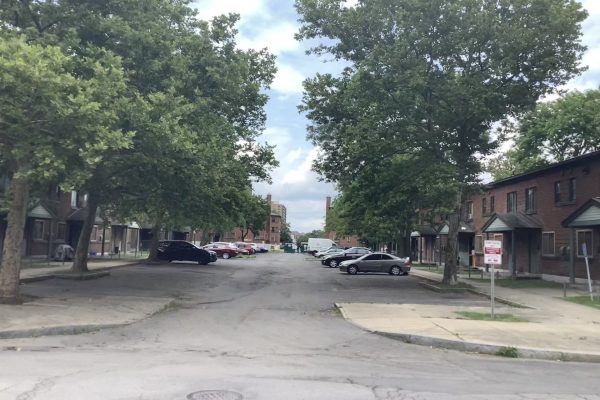MANNSVILLE, N.Y. (NCC News) – Each year at Sandy Pond, a largely enclosed bay off Lake Ontario, there is an annual ritual that must happen to ensure passage to the lake.
The lone, narrow channel that serves as the pond’s only entranceway to the lake is often buried in sand coming off of Central New York’s icy winter. In order for boats to pass through the channel, dredging, or the removal of sand, must take place. This year’s dredging, however, took an unexpected turn after a nest of the rare Piping Plover bird was found on the channel, causing the state Department of Environmental Conservation to shut the dredging down.
“We have always had a stipulation on our permit that we cannot dredge when the Piping Plover is in habitat,” said Cathy Goodnough, the owner of the Green Point Marina on Sandy Pond and the president of the Sandy Pond Channel Maintenance Association (SPCMA). “And that has never been a problem, except for we are in dire straits with the water level being so low that we didn’t get a chance to finish out on the lake, which normally is not a problem. But now because there’s so much sand out there, it is just filling in.”
The lack of dredging has caused the sand to remain near the channel, leading to water levels that are a third of what they are in a normal year. These shallow waters mean larger boats used for fishing and recreation risk being grounded while in the water itself.
“We have so many recreational boaters in this area,” Goodnough said. “They’re going to go out there with an I/O [inboard/outboard] or even a pontoon boat and they’re going to hit bottom. They’re going to hit their lower unit. Or they could be going fast and they have kids sitting on the front of a bow, and they run into that sand because they don’t know that it’s there. Somebody flies off the boat.”
The issue has caught the attention of Rep. Claudia Tenney (R-22), who has visited Sandy Pond within the last month to survey the situation, and is concerned over the economic impact of the shallow waters.
“If we were to go another year without any services, without any economic activity, this can force the closure permanently of many of the businesses, including marinas and campsites,” Tenney said in an interview with NCC News. “We have asked the DEC and the Army Corps of Engineers to allow immediate dredging in the region. We are happy to have them supervise the dredging to ensure that nothing that they would do in the dredging process will impact the habitat of the Piping Plover.”
The Piping Plover is a small bird that frequents shores and beaches. Fewer than 10,000 remain, and environmental experts are concerned that any interruption to their habitat could prevent them from breeding. The DEC echoed these concerns in a statement to NCC News.
“Displacement via disturbance is a major concern and minimizing any disturbance when the birds are scouting for a place to nest is critical,” the DEC said in its statement. “There are federal and state laws and regulations that protect this endangered species and prevent the potential ‘take’ of plovers. Taking is defined in the regulations to include not only the direct killing of listed species, but also actions that are expected to result in harm to individuals, including adverse impacts to habitats occupied by listed species.”
Goodnough, though, asserts that the dredging would take place far enough away from the Plovers’ nest where they would not be disturbed.
“We would not have touched the shoreline at all,” Goodnough said. “We would have trucked everything down the shoreline. Everything would have been in the water.”
As the summer nears, Tenney hopes for a compromise between state officials and the SPCMA in order to salvage the season for businesses, residents and tourists alike.
“We are trying to find a common sense accommodation with the Army Corps of Engineers and with the Natural Wildlife Committee and the Fish and Wildlife Services to give the accommodation to the Piping Plover nesting pair that has appeared,” Tenney said. “And also allow the area, which is at least 3,000 feet to be dredged so that we can have safe passage and that we don’t cause economic harm to the region, which in my in my view is looking like it’s going to be irreparable if we have this go on any further.”




